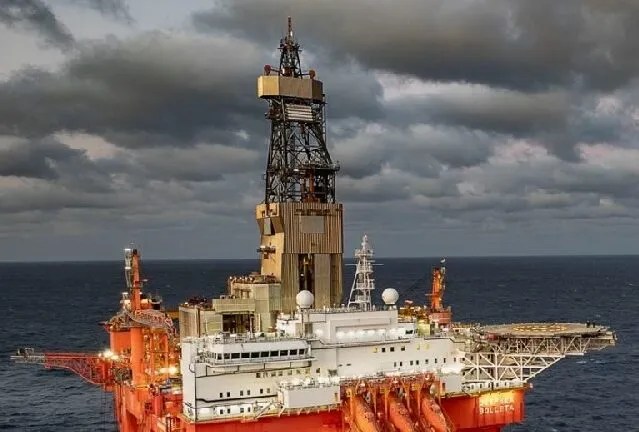
The government is considering a state-led acquisition of Springfield Exploration and Production Limited’s interest in the West Cape Three Points Block 2 as it seeks to reverse declining oil output and prevent strategic petroleum resources from remaining idle.
According to a statement from the Ministry of Energy, the move is part of a broader plan to protect national oil assets and speed up stalled upstream developments.
The Ghana National Petroleum Corporation (GNPC) and its subsidiary, GNPC Explorco, are leading discussions with Springfield, according to a statement issued on Wednesday.
The government views the talks as necessary to “safeguard national petroleum assets” and ensure resources do not stay stranded due to commercial or operational challenges, the statement said.
“The Government of Ghana (GoG), through the Ghana National Petroleum Corporation (GNPC) and its upstream subsidiary GNPC Explorco, is currently engaged in constructive discussions with Springfield Exploration and Production Limited (SEP) on a potential State-led takeover of SEP’s interest in the West Cape Three Points Block 2 (WCTP2),” the statement read in part.
“With Ghana’s national crude oil production declining over recent years, coupled with uncertainties within the global energy transition, Government considers it urgent to advance the development of the WCTP2 resource base,” it continued.
The Petroleum Commission and GNPC have begun the process of hiring an independent technical consultant and a transaction adviser to guide the proposed takeover.
The communique said the advisers will conduct a full technical assessment of the block, verify historical expenditure, undertake financial due diligence, and produce an independent valuation to establish a fair price for the asset.
The government said this step is intended to provide a “rigorous, transparent, and professionally grounded process” for evaluating the transaction.
The government’s intervention comes at a time when crude production has been declining, raising concerns about the long-term outlook for the petroleum sector.
Crude oil production has fallen sharply, declining by 25.9 percent in the first half of 2025 compared with the same period in 2024, according to the Public Interest and Accountability Committee (PIAC).
Total output from the country’s three major offshore fields, Jubilee, TEN, and Sankofa‑Gye Nyame, dropped to 18.42 million barrels, from 24.86 million barrels a year earlier.
The Jubilee field alone registered a steep 32.8 percent decline, driven by planned shutdowns, maintenance work and natural reservoir decline.
Overall, domestic crude output has now fallen for five consecutive years, slipping from a 2019 peak of 71.44 million barrels to 48.25 million barrels in 2024, raising concerns over the long-term sustainability of upstream production.
Authorities argue that WCTP2, which has faced delays in moving to development, must be advanced quickly to support revenue generation and maintain investment activity in the industry.
The government said a timely move would help prevent further setbacks, unlock long-term economic value, and strengthen the country’s energy security.
The statement suggested that the block could eventually be repositioned for joint development with a technically strong deepwater operator. The engagement of external advisers is meant to help shape that partnership model and create a commercially viable path forward.
“The government considers it urgent to advance the development of the WCTP2 resource base,” the statement noted, adding that the goal is to ensure decisions taken are commercially sound and “in the best interest of the Republic of Ghana.”
The administration also stressed that the intervention will align with the country’s local content policy. It said indigenous participation remains a priority and that any transition in ownership would seek to strengthen national technical capacity, improve skills transfer and keep Ghanaian companies active in upstream operations.
The statement said the government remains “fully committed to deepening the participation of indigenous Ghanaian companies” even as it moves to secure the block’s future development.
Springfield is a wholly Ghanaian-owned upstream oil and gas company that has made significant inroads in the country’s deepwater sector. Founded in 2008, the group initially focused on downstream operations before securing the WCTP2 offshore, becoming the first indigenous Ghanaian company to operate a deepwater block.
In 2019, SEP drilled the Afina‑1X exploration well, confirming substantial reserves estimated at around 1.5 billion barrels of oil in place, along with 0.7 trillion cubic feet of associated gas, marking a milestone for local participation in Ghana’s petroleum industry.
Legal and regulatory challenges have punctuated Springfield’s development trajectory. In 2020, the government issued a directive to unitise the Afina field with Eni’s adjacent Sankofa field, allotting Springfield a 54.545 percent interest.
This move was later challenged, and a 2024 international arbitration tribunal found procedural flaws in the directive, ruling that while unitisation was not inherently unlawful, the process had not complied with statutory requirements.
Following this, the Ministry of Energy rescinded the compulsory unitisation in early 2025, leaving Springfield free to manage the Afina discovery independently, though civil society groups like the Africa Centre for Energy Policy (ACEP) continue to call for greater transparency in appraisal data and development decisions.
Last year, Springfield undertook a high-profile appraisal of Afina‑1X using the Deepsea Bollsta rig, confirming strong reservoir performance with flow rates reaching 4,500 barrels of oil per day and a gas/condensate potential of up to 12,000 barrels of oil-equivalent per day.
Post Views: 33
Discover more from The Business & Financial Times
Subscribe to get the latest posts sent to your email.
